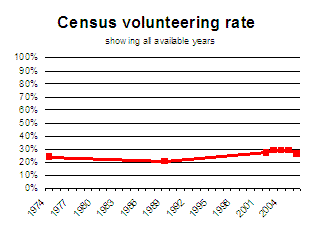Today, my colleagues and I discussed a paper on assisted human reproduction in Canada. In passing, we learned that the Royal Commission on New Reproductive Technologies “took advice from about 40,000 individuals and organizations with interest [sic] in the matter”–collectively known as the “stakeholders.” Consulting stakeholders is a popular way to enhance the quality and legitimacy of state decisions. It is most often used in the writing of regulations. Laws are written by legislatures, which claim legitimacy on the ground that their members have been elected. But laws always require detailed regulations; and regulators are not elected. Rulemakers and administrators appear more democratic if they consult “the stakeholders” before they make decisions.
Another phrase for “stakeholder” is “interest group.” Whereas consulting people who have “stakes” in a given matter sounds wise, giving access to interest groups sounds problematic. Indeed, consulting organized interests raises several concerns:
1. A set of interest-group representatives (no matter how numerous) will not represent the whole population. To form an organization takes resources. Thus people with more money will have more interest-groups per capita. Also, people whose interests are more clearly defined and pressing will be more likely to organize themselves. For example, there may be lobbies for various types of medical specialists, but only a weak lobby for patients. Diffuse and subtle interests may be completely lost. For instance, as consumers of food, we might have interests when the government is considering health regulations. (Maybe more state funding for in-vitro fertilization means less funding for agricultural research.) But it is unlikely that a lobby would form to represent the health-policy interests of eaters.
2. Because of the “Iron Law of Oligarchy,” the representatives of interest groups may not reflect the opinions of their own members. For example, someone who claims to represent thousands of nurses may not share the views of average actual nurses.
3. Most “stakeholders” arrive with instructions from their organizations. Sometimes those instructions are rather narrow. For instance, a stakeholder may work for a firm with a fiduciary obligation to maximize returns for its shareholders. When people hold rigid but conflicting instructions, they have trouble deliberating as a group. They may negotiate to get the best possible deal, but they cannot learn or change their aims in response to principled arguments. Faced with conflicting demands, public officials may well try to “split the difference.” The result is policymaking as bargaining.
4. Impressing policymakers takes skill. The relevant skills are for sale. Groups with more money will have better powerpoint presentations, more timely polling data, a better grasp of the regulatory timetable and process, more contacts with other groups, and so on. Thus they will tend to prevail.
There are two alternatives to stakeholder consultations–neither of them foolproof. One is to force legislatures to make all the really serious and controversial choices. The other option is to delegate decisions to regulatory agencies but require them to consult representative samples of the public.
[Two classic treatments of this problem are Theodore Lowi’s The End of Liberalism (1969) and Robert Reich’s “Policy Making in a Democracy,” a chapter in his 1990 edited volume The Power of Public Ideas.]
